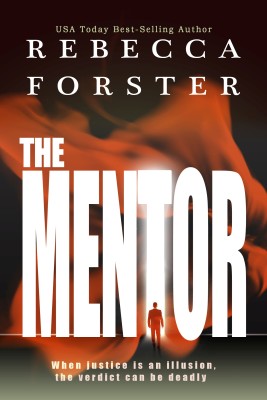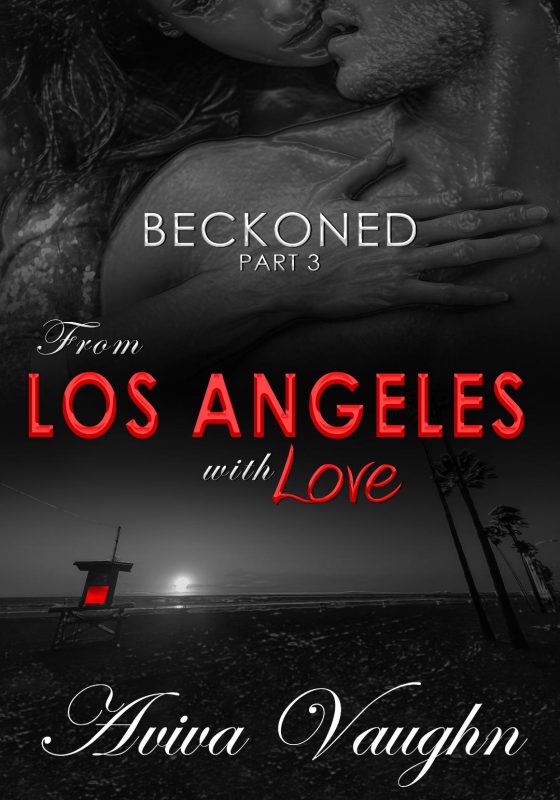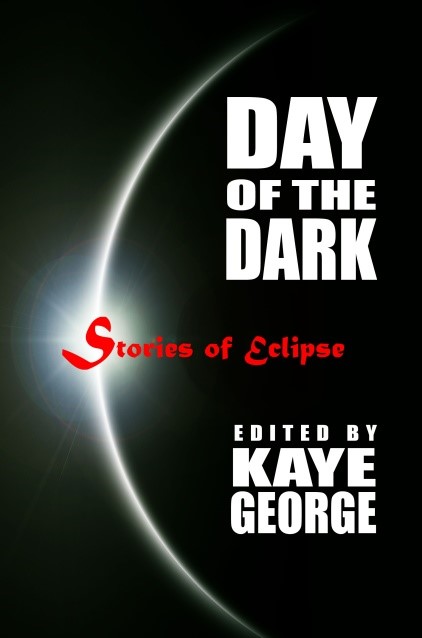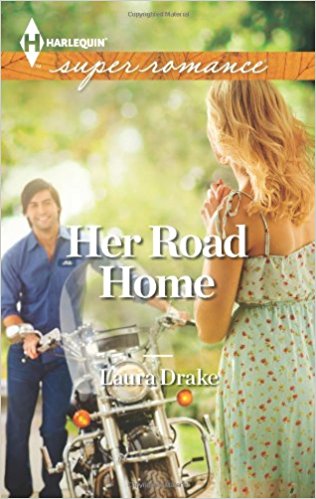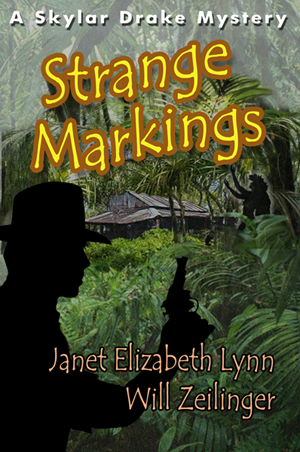It Had to be You
October 30, 2020 by Dianna Sinovic in category Quill and Moss by Dianna Sinovic tagged as Dianna Sinovic, flash Fiction, Sci-fi

Tatum checked the time: twenty minutes after Luna Hour 17, and Avery still hadn’t shown up. It was Tuesday Happy Hour, their ritual weekly date since Tatum was hired by the Zoning & Mining Commission last year. Not that she ever called it a date; she and Avery weren’t an item. She was sure of that.
But Tatum enjoyed Avery’s company, and Rick’s Café in Luna Center made the best Frozen Tychos in the entire city compound.
Avery was the one who had suggested that they hit Rick’s—Tuesdays were Ladies Night, a retro gimmick that appealed to the younger crowd in Luna City, which was pretty much the entire population. Luna Council had an upper age limit for immigrants, with the result: almost no one was over fifty-five.
“Another Tycho?” the wait staffer in Luna blue murmured at Tatum’s side.
Tatum nodded. What the hell. If Avery was standing her up—but he wasn’t, because they weren’t an item—then why not make the most of the evening before she headed back down to her pod on Level 9?
The cabaret was full, standing room only at this point, and Tatum watched the crowd churning through the room, laughing, talking, bouncing in the low gravity—one table was even singing a rousing happy birthday.
She sighed and drained her glass. Elbow to elbow with more people than she could count yet very, very alone: the life of an introvert engineer.
“May I?” A goateed man about her age nodded to the empty chair opposite her. He wore the dark green shirt and pants of the Air Quality division. “Our table needs an extra chair and this one is . . . ” He shrugged and smiled. It was a warm smile, a friendly one.
Tatum shrugged back. “Go ahead. I got ghosted. I won’t be needing it.”
The man raised his eyebrows, and Tatum knew she was being scrutinized; the gray Mining division uniform, her dark mass of curls, her face that tended too often toward seriousness. “His loss,” he said kindly. “I’m Sam. Please join us—we’re celebrating Kammy’s birthday. We’d love another partygoer.”
Avery emerged from the swirl of people to stand next to Sam, his face a scowl. “That’s my seat. Tatum was saving it for me.”
Tatum’s eyes flashed. “You’re forty minutes late, and it’s a zoo here tonight. He can have our chairs.” She took Avery’s arm and faced him toward the bar, then turned back to Sam. “We’ll stand—enjoy your party.”
Avery ordered a Bailly’s Special, and the two of them shouted to hear each other over the throbbing beat of an electronic “As Time Goes By.” He was late because of a priority request from the Mare Frigoris Region. He hadn’t messaged her because he was swamped; he didn’t think she would mind.
“No,” she shouted back. “I don’t mind.” But I do, she was surprised to realize.
Sam from the birthday table brushed against her as he passed, heading toward the bathrooms. He leaned in to speak in her ear. “Are you okay? You can still join our gang if you want to leave this basin bloke.”
Avery pushed Sam away from Tatum, and fueled by a second Bailly’s he’d just finished, punched the other man in the face.
“Ave!” Tatum said, grabbing to pull him back. “Stop!”
The music ended abruptly, as though someone had flipped a switch, and the crush of bargoers shrank back slightly, leaving the three in their own small, cleared, quiet space. Tatum could feel the crackle of emotion from Avery, from Sam, from the surrounding crowd. All eyes were on them. Luna City was fairly tame compared with the reports Tatum had read of Earthside towns, but arguments still erupted and anger still bubbled up.
Blood dripped from Sam’s nose, and he dabbed at it with a bar wipe. He faced Avery squarely, although he was half a head shorter and slender to Avery’s bulk. But Avery held up his hands, palms out, a supplicant.
“Sorry,” he said, “I went too far. But she’s with me.”
Sam gave a brief nod and looked at Tatum. “And what do you say?”
She reran the last few moments in her head—the explosion of anger, the fist connecting with face. Avery was jealous? It was a side of him she’d never seen.
“Thanks,” she said to Sam. “I’m fine. I’ll be fine. He’s with me.”
More Fiction by Dianna Sinovic
Alina K. Field October Featured Author
October 29, 2020 by Alina K. Field in category Featured Author of the Month tagged as Alina K. Field, October Featured Author, Regency Romances
Award winning author Alina K. Field earned a Bachelor of Arts Degree in English and German literature, but her true passion is the much happier world of romance fiction. Though her roots are in the Midwestern U.S., after six very, very, very cold years in Chicago, she moved to Southern California and hasn’t looked back. She shares a midcentury home with her husband, her spunky, blonde, rescued terrier, and the blue-eyed cat who conned his way in for dinner one day and decided the food was too good to leave.
She is the author of several Regency romances, including the 2014 Book Buyer’s Best winner, Rosalyn’s Ring. She is hard at work on her next series of Regency romances, but loves to hear from readers!
Visit Alina
In addition to Quarter Days, Alina’s quarterly column’s on A Slice of Orange, you can visit her at:
Books by Alina K. Field
Remember by Tara C. Allred
October 28, 2020 by marianne h donley in category Apples & Oranges by Marianne H. Donley, Spotlight tagged as #BookBuzz, #RABTBookTours, #Remember, #TaraCAllred, #TheExistenceSeries, @RABTBookTours
A Prelude Novella to The Existence Series
Science Fiction
Date Published: October 2020
Publisher: Patella Publishing
One invention and two men hoping to change the way humans connect—through memory exchanges—but days before it’s released, one man realizes it may do more harm than good.
Foster Grady pleads with doctors to give his dying wife a moment of reprieve. He wants her to experience his creation: the ability to relive their life together through his memories. But when doctors refuse, terminal patient, Ashyr Harmon, convinces Foster to give him the chance instead.
The exchange becomes Ashyr’s lifeline and the two form a friendship and business deal which ignites dangerous consequences.
BEYOND THE END, BOOK 1 of THE EXISTENCE SERIES – Coming November 2020
Other Books In The Existence Series:
Beyond the End
The Existence Series, Book One
Publisher : Patella Publishing
Release Date: November 20, 2020
Nothing else exists—at least that’s what she’s been told.
Strong-willed teenager Leilani Grady is suffocating on her family’s island. She wants off, but her parents say the rest of Earth is destroyed.
When a stranger shows up, Leilani realizes her parents have fed her a life of lies.
Ashyr Harmon shares a complicated history with her parents—and now he wants Leilani’s help with saving his society. It’s her chance to escape the only place she knows. But Leilani must decide who she trusts: her flesh and blood or this man who promises to fulfill her dream.
Excerpt
Both men pressed shoulder-to-shoulder to look down at the resume, neither commenting on the fact Mariana had emailed it to at least one of them earlier in the week.
Regardless, while they looked, she looked too. Past the pizza boxes, down a long table against the east wall. She slid a foot back toward the table and, with a lean of her head, read physiology handwritten across a banker box. Then a slide of the foot to the right to see the scribble in permanent marker mind vs the brain across a journal cover, and then to a loose sheet of paper with a sketch of a glove with the word pressable next to circles which lined the palm.
Her feet had shifted ninety degrees when she heard Ashyr say, “We want to hire you.”
She looked behind her back, a grin spilling over her face. “Just like that?”
He shrugged. “I almost died before I discovered this…this…”
“Em-Path” Folsom added, standing directly next to Ashyr as if the two spoke as one.
“It saved my life. And showed me what to live—”
“And we don’t have time to waste,” Folsom inserted.
Ashyr twisted to face Folsom, nodding his head, as if Folsom had said the key words. “Yeah. It’s about timing. And you seem like an excellent fit.”
Mariana turned her focus back to scanning the details of the room. On the north wall, a table presented itself as a technology graveyard with broken tablets, game consoles, power cables, remote control boxes, and all sorts of other things she didn’t recognize. She felt awkward, her back toward these men who had just offered her a job. But an urgent curiosity kept drawing her forward, her feet moving toward a dark room, only partially visible, tucked in the far corner between the back table and the west wall, which was lined with a lab sink, a long counter, and a fridge. The room’s door was ajar. Taped to the center of the door, she read the handwritten note.
Please Do Not Disturb—Memory Exchange in Progress.
She drew her head back and turned around to face her interviewers. Her breath caught in her throat, the question ready now. “What’s the pay?” As long as it was higher than minimum wage, she would have to take the job.
Ashyr stood taller. “What do you want it to be?”
Folsom released a sharp cough. “Within reason.” He gave her an apologetic grin. “We don’t have much to offer yet, but with your help finding the support we need, we will soon.”
Ashyr stepped closer toward her. His clear blue eyes pulling her in again. “We are committed to making this work. We’re investing everything we have into this. In other words, we’re super, absolutely, insanely committed to this. And we want to make this a win for you too.”
Mariana nodded slowly, unsure of what exactly she was agreeing to.
“Help secure us a sponsor in—what—?” He twisted looks from Folsom to Mariana, “Two? Three months? In three months. You secure us a sponsor in three months and…” his voice turned soft, dipping into a whisper, “we’ll make you a partner with us.” Then he flung back to face Folsom. “Right? She helps get us a sponsor and she has partial ownership, with you, me, and Brody. It’ll be the four of us.” He looked again, back and forth between the two of them. “A percentage.” He started waving his hands around as if a number wasn’t within his mental reach. “We draft up all that legal stuff. We’ll figure it out. Together, we all make this dream come alive.” He whirled back to face her with a grin. With a lopsided tilt of the head, he said, “It’ll be worth it for all of us.”
Folsom stepped forward, the three of them forming a triangle.
Ashyr straightened. His clear blue eyes met hers. From him to Folsom’s rich blue eyes, Mariana looked at both of them, a nod growing inside her, just as Ashyr said, “So, you in?”
About the Author
TARA C. ALLRED is an award-winning author, instructional designer, and educator. She has been recognized as a California Scholar of the Arts for Creative Writing and is a recipient of the Howey Awards for Best Adult Book and Best Adult Author. She lives in Utah with her husband.
Her published works include REMEMBER (The Existence Series), SANDERS’ STARFISH and UNAUTHORED LETTERS (John Sanders Series), HELPING HELPER and THE OTHER SIDE OF QUIET, a 2015 Kindle Book Award Finalist and Whitney Award Winner.
Through online coaching, she helps other writers unleash their creative stories.
To learn more about the author, visit www.taracallred.net.
Contact Links
Purchase Link
Read FREE with Kindle Unlimited
Holiday Home Run by Priscilla Oliveras
October 27, 2020 by A Slice of Orange in category Apples & Oranges by Marianne H. Donley, Spotlight tagged as #BookBuzz, #HolidayHomeRun, #PriscillaOliveras, #RABTBookTours, @RABTBookTours, holiday romance, new releaseHappy Release Day to Priscilla Oliveras, her new Holiday Romance, Holiday Home Run is AVAILABLE NOW!

Event planner Julia Fernández is in Chicago for an internship that she hopes to turn into a full-time job. She’s ready to live on her own, out from under her familia’s expectations that she take over their catering business in Puerto Rico and away from their year-round baseball fever thanks to her three ball-playing brothers.
Ex-MLB pitcher Ben Thomas knows what it’s like to have different dreams than your family intends for you, but since his injury-caused early retirement, he’s been struggling to find the sense of family baseball once brought him. When he volunteers as the emcee for Julia’s big holiday fundraiser for a local youth center, he finally begins to find a sense of purpose working with the kids and alongside Julia.
She’s focused on organizing the best holiday event the youth center has ever seen, not on romance. But Ben…he’s got a game plan for them that includes both.
Holiday Home Run was previously released as part of the holiday anthology A SEASON TO CELEBRATE.
About the Author
Priscilla Oliveras is a USA Today Best-Selling author & 2018 RWA® RITA®
double finalist who writes contemporary romance with a Latinx flavor. Her books have earned Starred Reviews from Publishers Weekly & Booklist, hit
the top 5 on Barnes & Noble’s Top 100 Book Bestseller list, & notched Amazon #1 Bestseller status. Her latest release, Island Affair, made it onto O, The Oprah Magazine’s “28 of the Best Beach Reads of Summer 2020” list.
Priscilla earned her MFA in Writing Popular Fiction from Seton Hill University and currently serves as adjunct faculty in the program while also teaching the online class “Romance Writing” for ed2go. She’s a self-professed romance genre junkie, who’s also a sports fan, beach lover, Zumba aficionado, and hammock nap connoisseur.
Follow her at prisoliveras.com and on social media via @prisoliveras and Facebook.
Contact Links
Purchase Links

Endurance by Neetu
October 26, 2020 by Neetu Malik in category Poet's Day by Neetu Malik tagged as endurance, finding your way, Neetu, poetry
Endurance
a feeble flame
does not illuminate
my path on this
dark night
I must stop
until day breaks
and shows me the road
that lies ahead
if there be one
in such dolorous times
© Neetu Malik
Affiliate Links
A Slice of Orange is an affiliate with some of the booksellers listed on this website, including Barnes & Nobel, Books A Million, iBooks, Kobo, and Smashwords. This means A Slice of Orange may earn a small advertising fee from sales made through the links used on this website. There are reminders of these affiliate links on the pages for individual books.
Search A Slice of Orange
Find a Column
Archives
Featured Books
DAY OF THE DARK
A recipe for disaster: take one total solar eclipse, add two dozen spine-chilling mysteries, and shake the reader until the world ends in Day of the Dark!
More info →STRANGE MARKINGS
The Pacific breezes blow many things in from the ocean, this time its power, greed, and murder.
More info →Newsletter
Contributing Authors
Search A Slice of Orange
Find a Column
Archives
Authors in the Bookstore
- A. E. Decker
- A. J. Scudiere
- A.J. Sidransky
- Abby Collette
- Alanna Lucus
- Albert Marrin
- Alice Duncan
- Alina K. Field
- Alison Green Myers
- Andi Lawrencovna
- Andrew C Raiford
- Angela Pryce
- Aviva Vaughn
- Barbara Ankrum
- Bethlehem Writers Group, LLC
- Carol L. Wright
- Celeste Barclay
- Christina Alexandra
- Christopher D. Ochs
- Claire Davon
- Claire Naden
- Courtnee Turner Hoyle
- Courtney Annicchiarico
- D. Lieber
- Daniel V. Meier Jr.
- Debra Dixon
- Debra H. Goldstein
- Debra Holland
- Dee Ann Palmer
- Denise M. Colby
- Diane Benefiel
- Diane Sismour
- Dianna Sinovic
- DT Krippene
- E.B. Dawson
- Emilie Dallaire
- Emily Brightwell
- Emily PW Murphy
- Fae Rowen
- Faith L. Justice
- Frances Amati
- Geralyn Corcillo
- Glynnis Campbell
- Greg Jolley
- H. O. Charles
- Jaclyn Roché
- Jacqueline Diamond
- Janet Lynn and Will Zeilinger
- Jaya Mehta
- Jeannine Atkins
- Jeff Baird
- Jenna Barwin
- Jenne Kern
- Jennifer D. Bokal
- Jennifer Lyon
- Jerome W. McFadden
- Jill Piscitello
- Jina Bacarr
- Jo A. Hiestand
- Jodi Bogert
- Jolina Petersheim
- Jonathan Maberry
- Joy Allyson
- Judy Duarte
- Justin Murphy
- Justine Davis
- Kat Martin
- Kidd Wadsworth
- Kitty Bucholtz
- Kristy Tate
- Larry Deibert
- Larry Hamilton
- Laura Drake
- Laurie Stevens
- Leslie Knowles
- Li-Ying Lundquist
- Linda Carroll-Bradd
- Linda Lappin
- Linda McLaughlin
- Linda O. Johnston
- Lisa Preston
- Lolo Paige
- Loran Holt
- Lynette M. Burrows
- Lyssa Kay Adams
- Madeline Ash
- Margarita Engle
- Marguerite Quantaine
- Marianne H. Donley
- Mary Castillo
- Maureen Klovers
- Megan Haskell
- Melanie Waterbury
- Melisa Rivero
- Melissa Chambers
- Melodie Winawer
- Meriam Wilhelm
- Mikel J. Wilson
- Mindy Neff
- Monica McCabe
- Nancy Brashear
- Neetu Malik
- Nikki Prince
- Once Upon Anthologies
- Paula Gail Benson
- Penny Reid
- Peter Barbour
- Priscilla Oliveras
- R. H. Kohno
- Rachel Hailey
- Ralph Hieb
- Ramcy Diek
- Ransom Stephens
- Rebecca Forster
- Renae Wrich
- Roxy Matthews
- Ryder Hunte Clancy
- Sally Paradysz
- Sheila Colón-Bagley
- Simone de Muñoz
- Sophie Barnes
- Susan Kaye Quinn
- Susan Lynn Meyer
- Susan Squires
- T. D. Fox
- Tara C. Allred
- Tara Lain
- Tari Lynn Jewett
- Terri Osburn
- Tracy Reed
- Vera Jane Cook
- Vicki Crum
- Writing Something Romantic
Affiliate Links
A Slice of Orange is an affiliate with some of the booksellers listed on this website, including Barnes & Nobel, Books A Million, iBooks, Kobo, and Smashwords. This means A Slice of Orange may earn a small advertising fee from sales made through the links used on this website. There are reminders of these affiliate links on the pages for individual books.







































